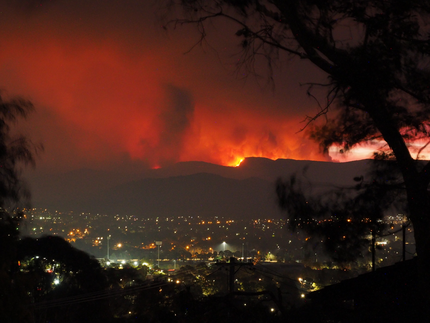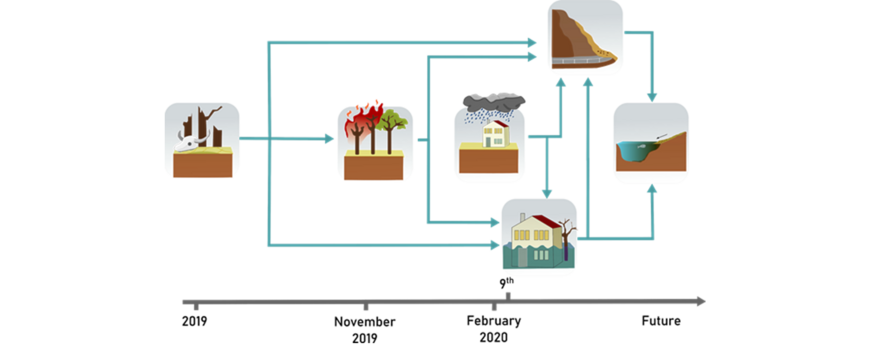Task Force: Wildfires in Australia 2019/2020
Between June 2019 and February 2020 exceptional wildfires swept across Australia, killing at least 33 people, destroying ecosystems and burning an area the size of the United Kingdom. This disaster was caused by an unprecedented drought in the previous years. But these events where just the first two links in an entire chain of hazards. The fires were extinguished by heavy rainfall leading to floods and rapidly eroding the soil that was exposed by the fires. Soil, ash, and charred vegetation were flushed into the rivers and lakes, where they drastically reduced water quality.
The task force follows the cascade through the Manning river catchment in New South Wales, to understand the complex interactions of natural hazards. For this purpose, the scientists use publicly available satellite images, weather and river data. Their work shows that even minor hazards can have an increased impact within a cascade, which is still an underestimated challenge, especially in light of ongoing climate change. To be better prepared for future hazard cascades, the complex interactions involved in natural disasters need to be further investigated, and the events need to be included in risk analysis and planning.
Published article: KEMTER, M., FISCHER, M., LUNA, L.V., Schönfeldt, E., VOGEL, J., BANERJEE, A., Korup, O., Thonicke, K. (2021): Cascading hazards in the aftermath of australia's 2019/2020 black summer wildfires, Earth's Future, 9. https://doi.org/10.1029/2020EF001884.


